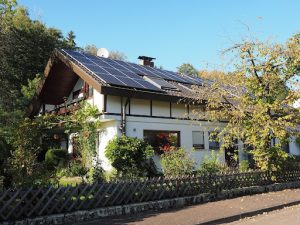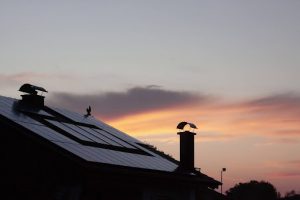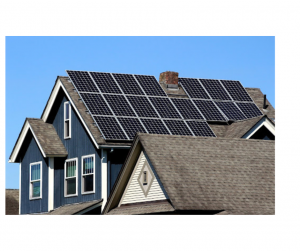
Buying a home with solar panels can be an enticing prospect. Solar energy offers environmental benefits, potential cost savings, and a step towards energy independence.
However, before signing on the dotted line, it’s essential to evaluate several factors to ensure your new home’s solar setup meets your needs and expectations. Here’s a detailed guide to help you make an informed decision.
1. Ownership and Lease Agreements
The first thing to clarify is whether the solar panels are owned outright by the seller or if they are leased.
– Owned Panels: If the panels are owned, they are typically included in the home purchase, and you won’t have to make additional payments for them.
– Leased Panels: If the panels are leased, you may need to take over the lease payments, which can affect your budget. Review the lease agreement to understand the terms, monthly costs, and the duration of the lease.
2. System Condition and Age
Understanding the age and condition of the solar system is crucial. Solar panels generally have a lifespan of 25-30 years, but their efficiency can decrease over time.
– Age: Determine how many years the system has been in use. Older systems might be less efficient and could require replacement sooner.
– Maintenance Records: Request maintenance records to see if the system has been well-maintained. Regular cleaning and inspection can prolong the lifespan and efficiency of the panels.
3. Energy Production and Consumption
Evaluate the system’s energy production and how it aligns with your household’s energy consumption.
– Production: Ask for past utility bills and solar production reports to understand how much energy the system generates. This data will give you an idea of potential savings on electricity bills.
– Consumption: Compare the system’s production with your expected energy consumption. A system that meets the current owner’s needs might not be sufficient if you have higher energy demands.

4. Warranty and Transferability
Check the warranties on the solar panels and other system components.
– Panel Warranty: Solar panels usually come with a 20-25 year warranty. Ensure that the warranty is still valid and transferable to you as the new owner.
– Inverter Warranty: The inverter, which converts solar energy to usable electricity, typically has a shorter warranty (5-10 years). Find out if the inverter is under warranty and its remaining lifespan.
– Transferability: Confirm if the warranties can be transferred to you. This will protect you from potential repair or replacement costs.
5. Roof Condition
The condition of the roof supporting the solar panels is another critical factor.
– Roof Age and Material: An older roof may need repairs or replacement, which could require the temporary removal of solar panels. This process can be costly and inconvenient.
– Installation Impact: Assess how the installation has impacted the roof. Poor installation can lead to leaks or structural damage.
6. Local Regulations and Incentives
Understand the local regulations, incentives, and policies regarding solar energy.
– Permits and Compliance: Ensure the system complies with local building codes and has the necessary permits.
– Incentives: Research available incentives, such as tax credits or rebates, which could enhance the financial benefits of owning a solar-powered home.
– Net Metering Policies: Check the local utility’s net metering policy to see how they credit you for excess solar energy fed back into the grid. This can significantly impact your energy savings.

7. Resale Value
Consider how the solar panels will affect the home’s resale value.
– Market Preferences: Homes with solar panels can be more attractive to environmentally conscious buyers. However, preferences can vary by region.
– Added Value: Well-maintained and owned solar systems generally add value to a home. Ensure that the added value justifies any additional costs associated with the solar setup.
Buying a home with solar panels can offer numerous benefits, but it requires careful consideration of several factors. From ownership status and system condition to local regulations and potential savings, understanding these aspects will help you make an informed decision. By doing your due diligence, you can ensure that your new home’s solar system aligns with your energy needs and financial expectations, making your investment in solar energy both smart and sustainable.
